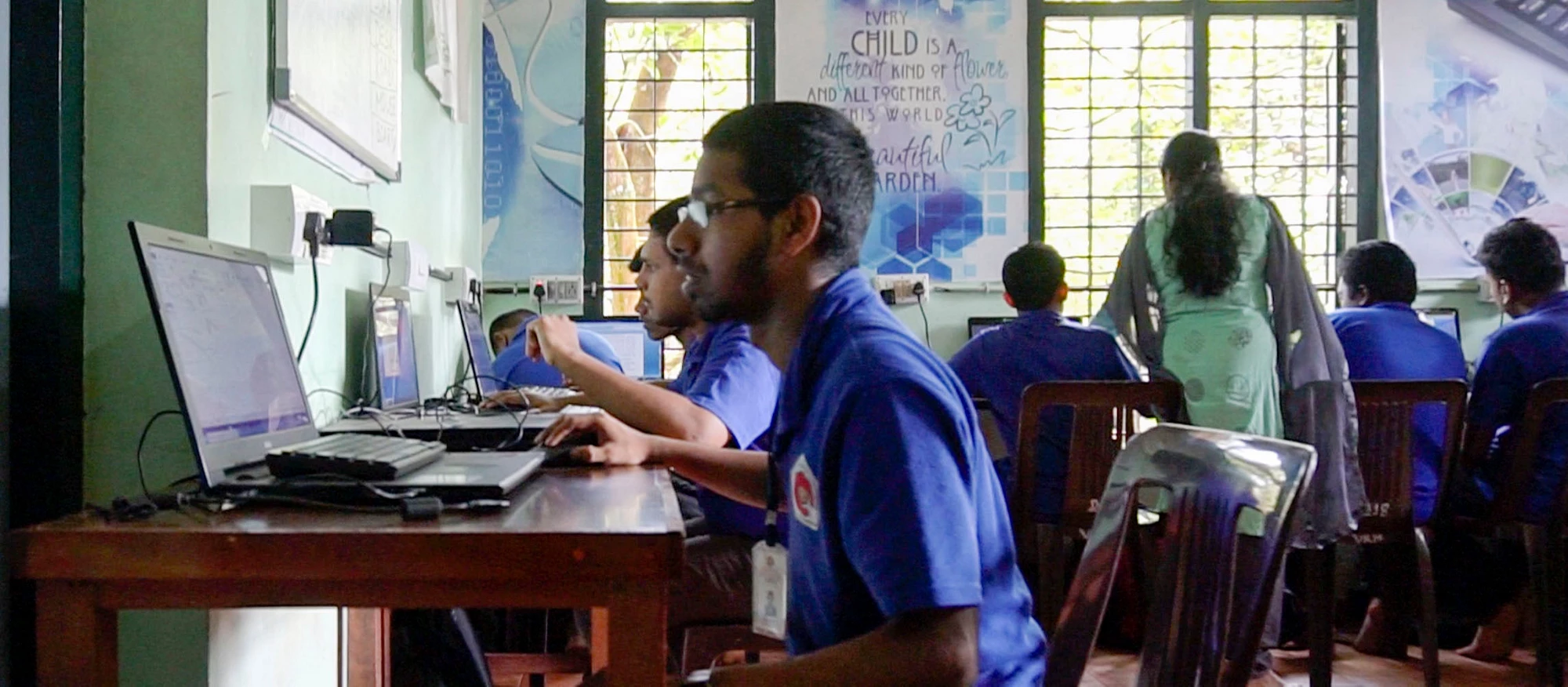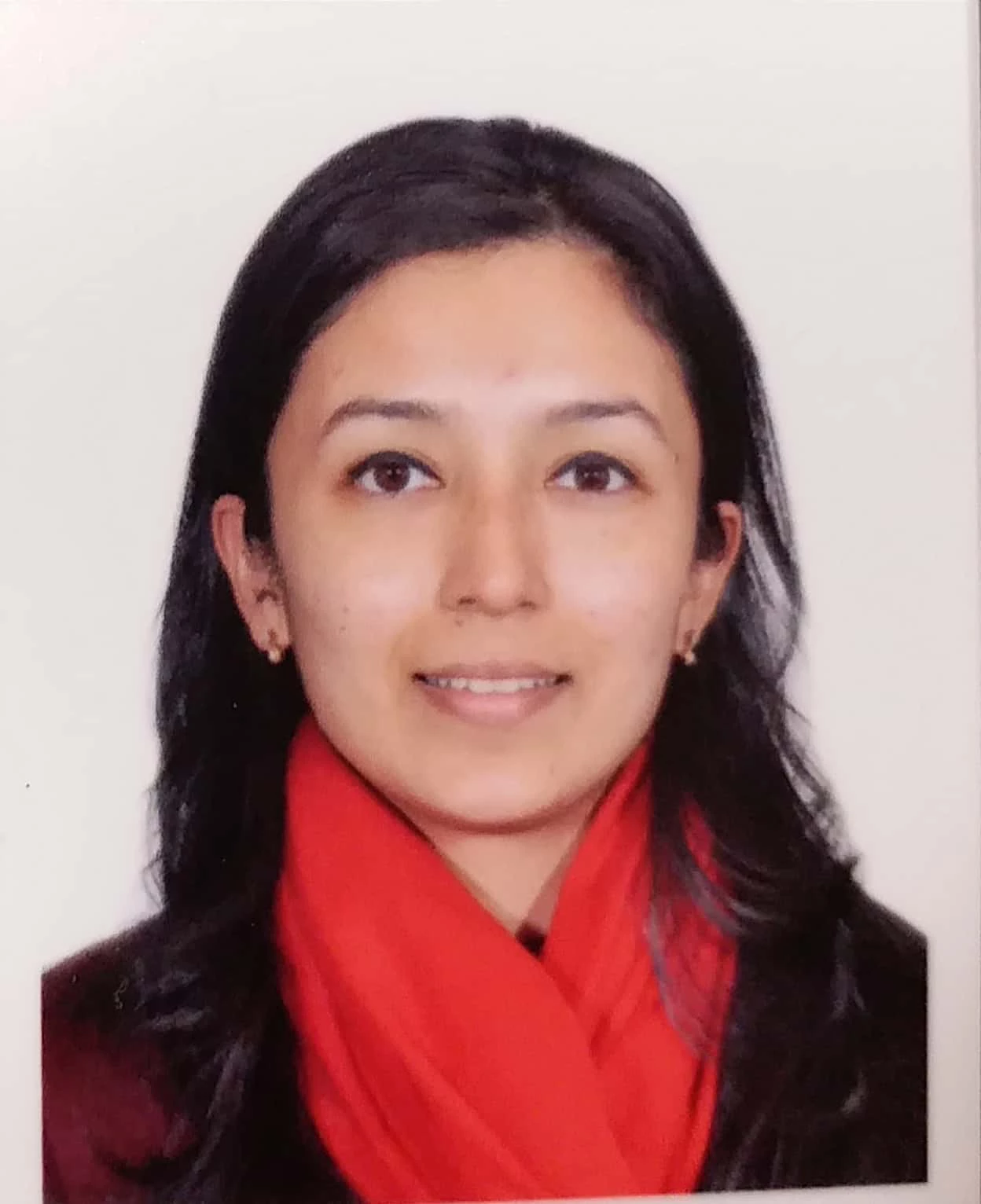 Photo: Jan Shikshan Sansthan, Mallapuram
Photo: Jan Shikshan Sansthan, Mallapuram
“I want to work and earn money and contribute to my family.” This was Anas’s dream as he saw his family struggle to take care of him while growing up in Kerala. Born with a disability affecting his cognitive and learning skills, even simple daily activities were a struggle. Today, at 27, Anas works as a data entry operator earning his own money and takes care of himself and his family.
Hashir lives in the Malappuram district of north Kerala. Like Anas, he too grew up with intellectual disabilities. Today, the feisty 24-year-old helps young students learn how to use a computer and aspires to be a trainer soon.
The story of Anas and Hashir, and many others with disabilities, is one of struggle and disappointment. But it is also one of aspiration and perseverance. They have overcome daunting odds with the help of supportive families and a Government of India program called Nai Manzil – “New Horizons.”
The Nai Manzil program run by India’s Ministry of Minority Affairs provides school dropouts from minority communities in 26 states and 3 union territories with six months of education and three months of skills training , followed by a further six months of support to help them establish themselves.
The Nai Manzil program run by India’s Ministry of Minority Affairs provides school dropouts from minority communities in 26 states and 3 union territories with six months of education and three months of skills training
According to the Government of India’s 2011 Census, out of the estimated 26.8 million people with intellectual or physical disabilities in the country, 12 million are children or youth. In India, disabled children are unlikely to progress beyond primary school and only 9 percent complete secondary education. This is because many of the specialized schools for disabled children are not formally certified by the education department. As a result, with no certified education or skills training, they are unable to get suitable employment. Data shows that persons with disabilities are twice as likely as the rest of the population to be unemployed.
Rupa is a beneficiary of the Nai Manzil Program. She suffers from an orthopedic disability and can use only one of her arms. She was married while still in school and could not complete her education. By the time the Nai Manzil Program came along, it had been over a decade since she had last studied. Anxious and unsure, she however took a leap of faith, and successfully completed Grade 8 and enrolled for skills training. Today, at 33, she works as a bedside assistant at a hospital, earning her own money. Rupa recalls with great pride how her disability was not even mentioned when she interviewed for the job. “They asked me questions about my knowledge and skills. They wanted to see if I can do the job well.”
One of the distinct achievements of the Nai Manzil program has been to bring minority youth with disabilities back into formal education and skills training
An accident at the young age of 16 paralyzed Laxmi from the waist down. She was forced to leave school at grade 5 to support her family but she was always keen to complete her education. The Nai Manzil program provided her the opportunity. Today, equipped with her education and skills training, she is employed as a bedside assistant at a hospital in Siddipet near Hyderabad, She is confident and unafraid, and is keen to study more and improve herself at her job.
The Nai Manzil program has also given these young people a belief in themselves and a conviction in their capabilities to take on increased responsibilities. For example, during the 2019 Kerala floods, Anas and his peers went door to door in their neighborhood and collected ₹100,000 in donations for flood relief and recovery, which they then gave to the local government. The local government representative commended the “transformation of these students from ‘receivers’ of support to socially responsible citizens.”
This, in some ways, is one of the successes of the program. The Nai Manzil program is providing opportunities for these young people to grow and develop with dignity as part of the community and give back to the community.
The World Bank is supporting the Nai Manzil program with a loan of $50 million. This is the second in a series of blogs on the Nai Manzil program. The first blog on empowering minority women in India can be accessed here.




Join the Conversation